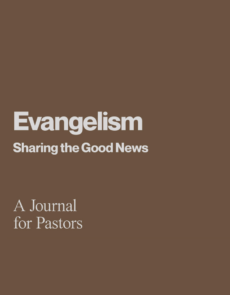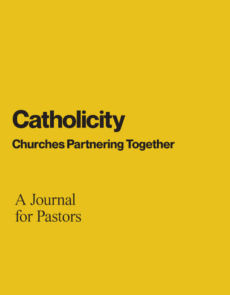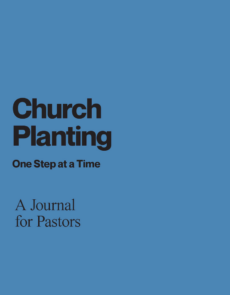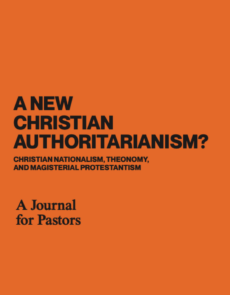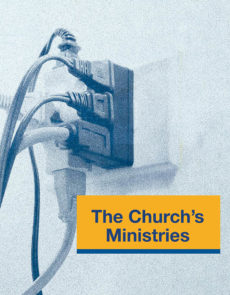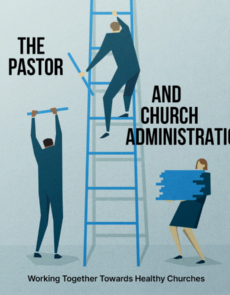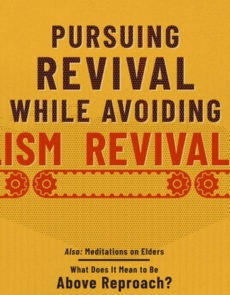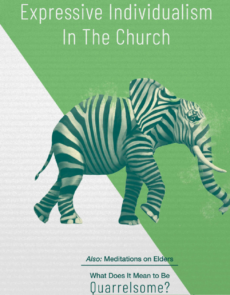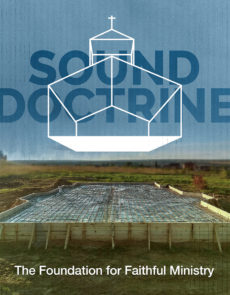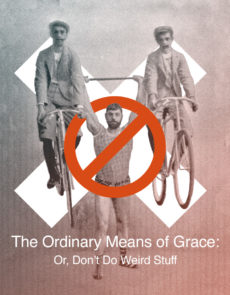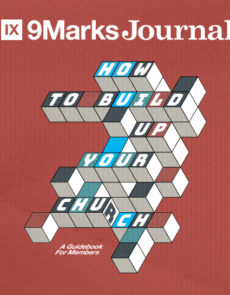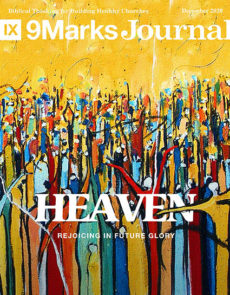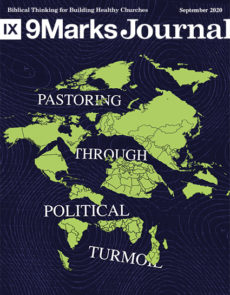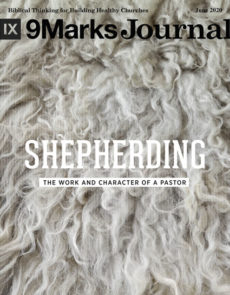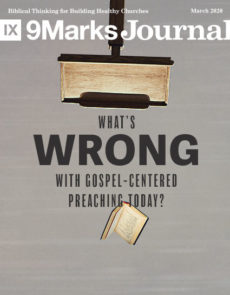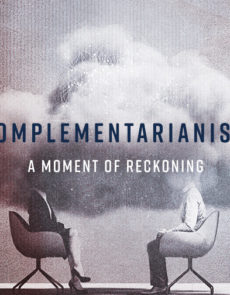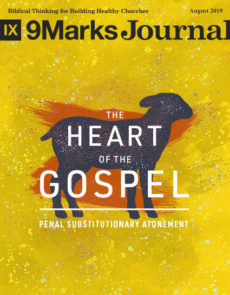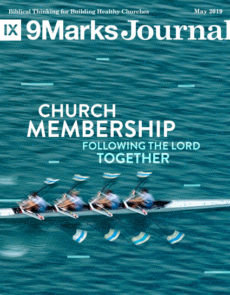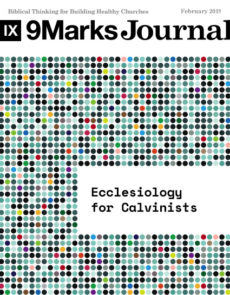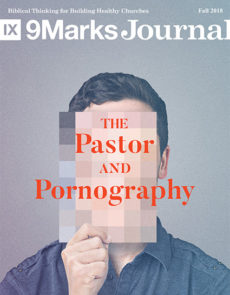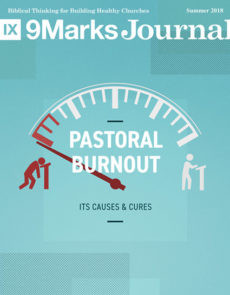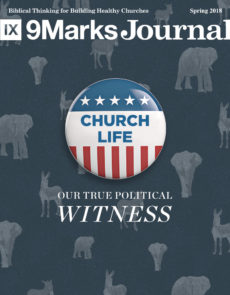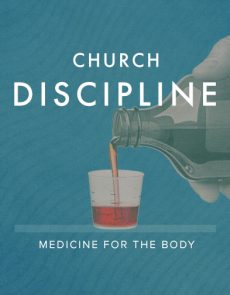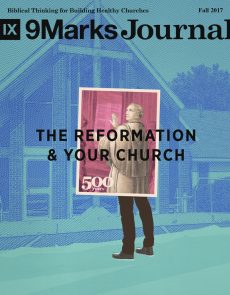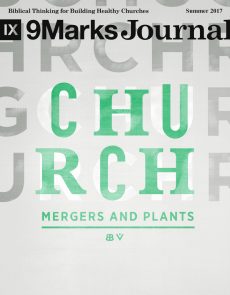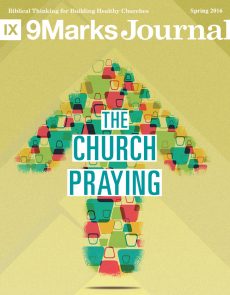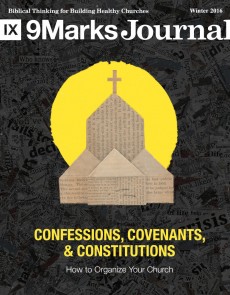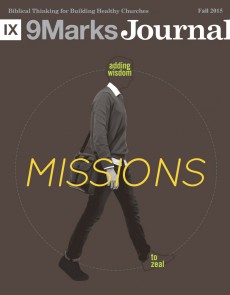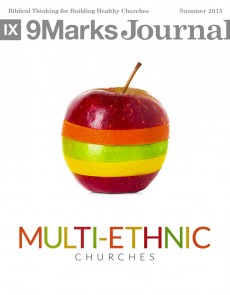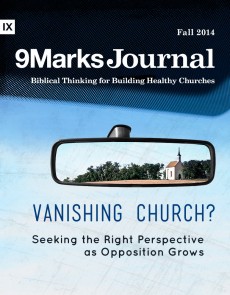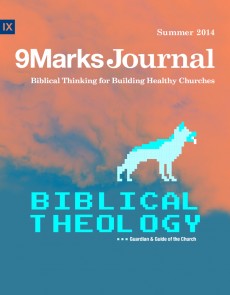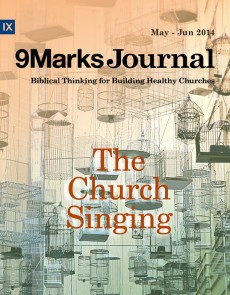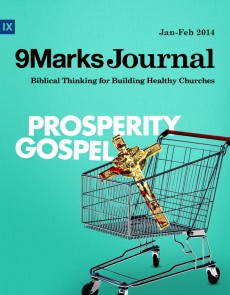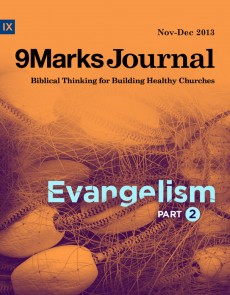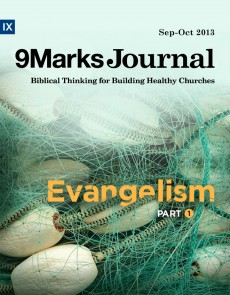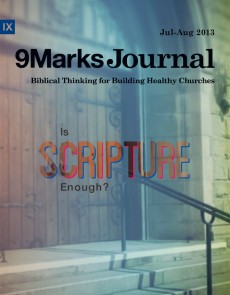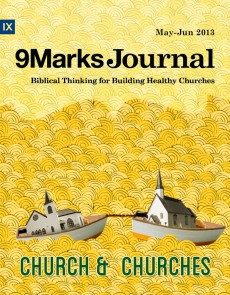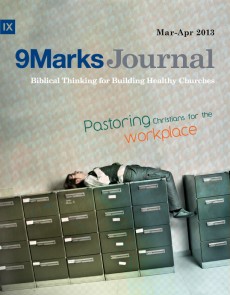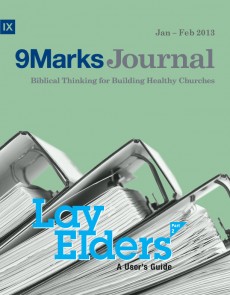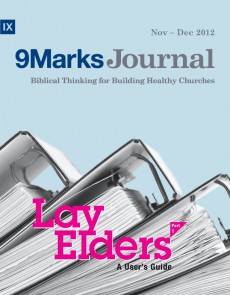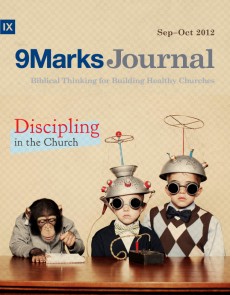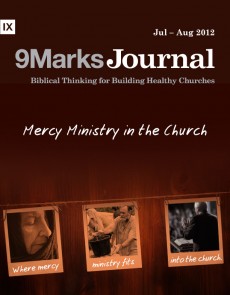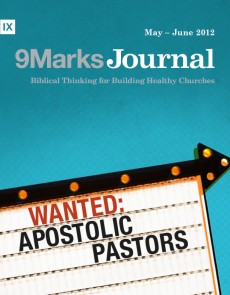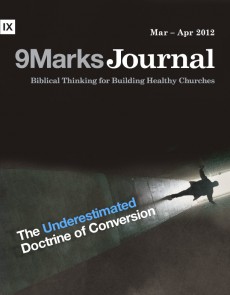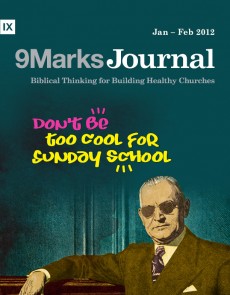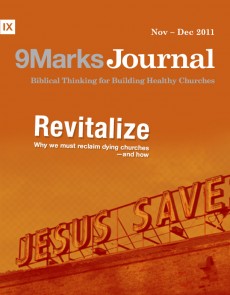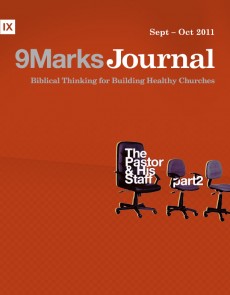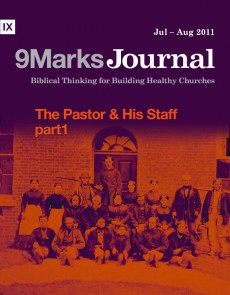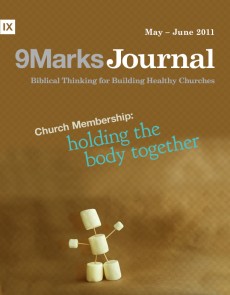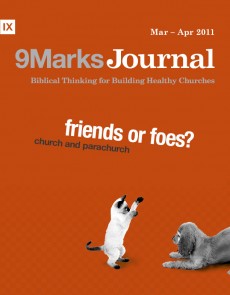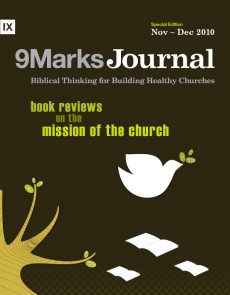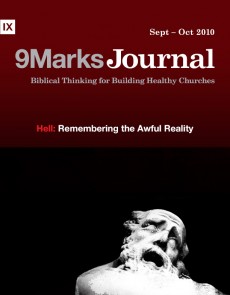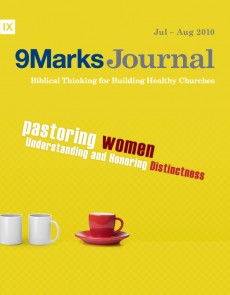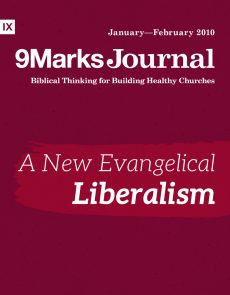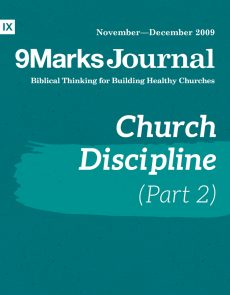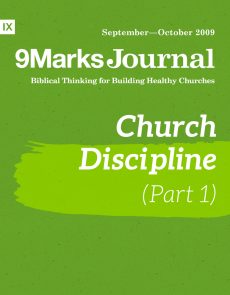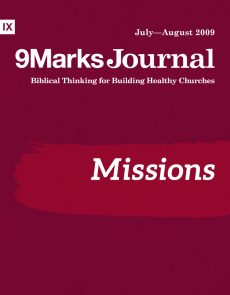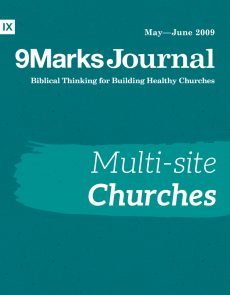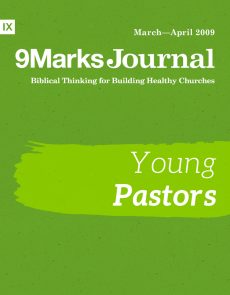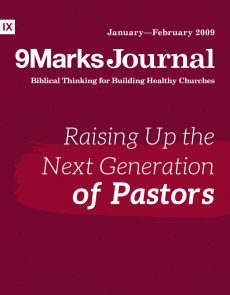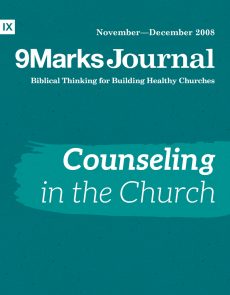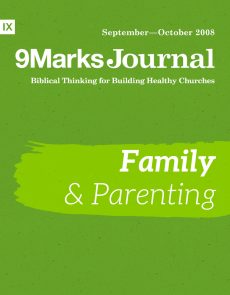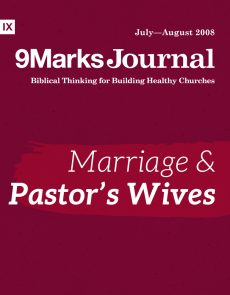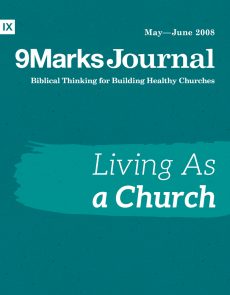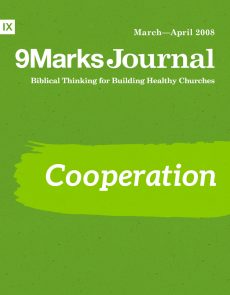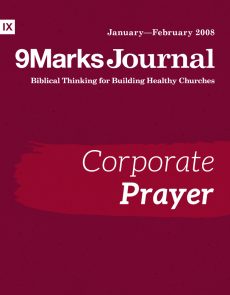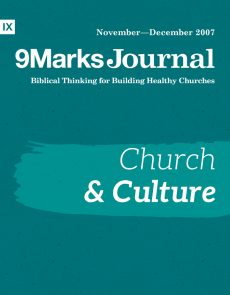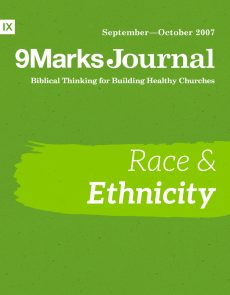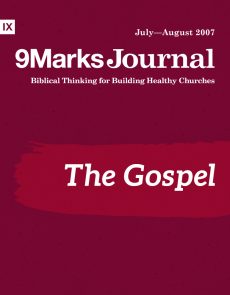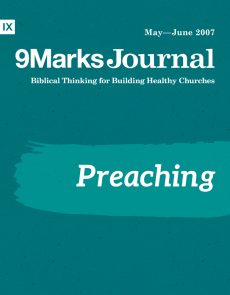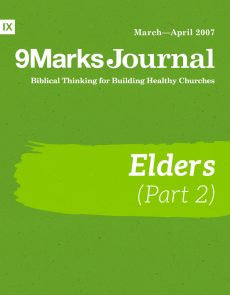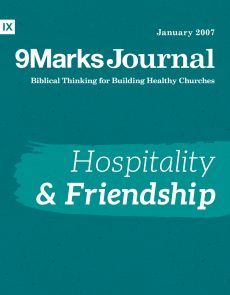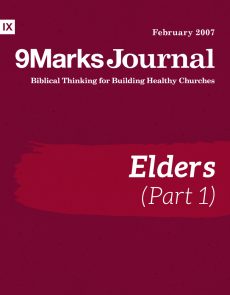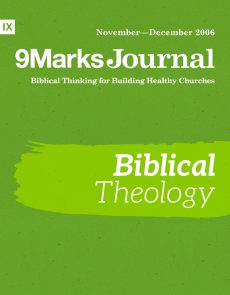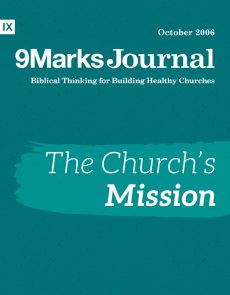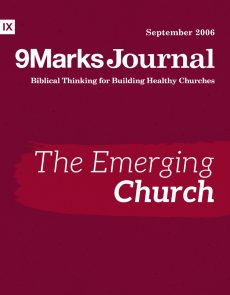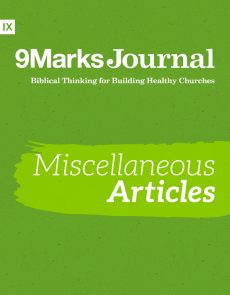The Mindset of the New Evangelical Liberalism
How to Become a Liberal Without Attending Harvard Divinity School
By Michael Lawrence | 9Marks Journal: A New Evangelical Liberalism | 04.02.2010I love my sheep. And I love myself. And it’s those two loves, wrongly focused, that tempt me down a gospel-denying path.
The Real Scandal of the Evangelical Mind
By Carl Trueman | 9Marks Journal: A New Evangelical Liberalism | 03.01.2010The day is coming when the cultural intellectual elites of evangelicalism—the institutions and the individuals—will face a tough decision.
Air Conditioning Hell: How Liberalism Happens
By Al Mohler | 9Marks Journal: A New Evangelical Liberalism | 03.01.2010Do we believe that hell is a part of the perfection of God’s justice? If not, we have far greater theological problems than those localized to hell.
The Neo-Liberal Stealth Offensive
By Phil Johnson | 9Marks Journal: A New Evangelical Liberalism | 03.01.2010The success or failure of the whole liberal agenda hinges on a patient public-relations campaign.
Case Studies in the New Evangelical Liberalism
What’s Happening to InterVarsity?
By J. Mack Stiles | 9Marks Journal: A New Evangelical Liberalism | 03.01.2010So, why is InterVarstity confused? I worry that it’s because they are muddled about the gospel.
What Would Athanasius Do: Is The Great Tradition Enough?
By Greg Gilbert | 9Marks Journal: A New Evangelical Liberalism | 03.01.2010At the end of the day the Great Tradition, at least defined as the words of those creeds, simply isn’t going to be enough to ground Christian unity.
Notes from the Future: Evangelical Liberalism in the UK
By Mike Ovey | 9Marks Journal: A New Evangelical Liberalism | 03.01.2010The inherent instability of theological liberalism is critical.
Social Gospel Redux?
By Russell D. Moore | 9Marks Journal: A New Evangelical Liberalism | 03.01.2010Does the social gospel give us a more “real” Christianity?
Historical Perspective on the New Evangelical Liberalism
What Lessons Can We Learn from the History of Liberalism?
By Gregory A. Wills | 9Marks Journal: A New Evangelical Liberalism | 03.01.2010Liberalism is a heresy of evangelicalism. Evangelicals often miss this point.
Who Exactly Are the Evangelicals?
By Michael Horton | 9Marks Journal: A New Evangelical Liberalism | 03.01.2010I remain convinced that there is still a place for being “evangelical.” Why? Quite simply, because we still have the evangel.
More Than a Feeling: The Emotions and Christian Devotion
By D. G. Hart | 9Marks Journal: A New Evangelical Liberalism | 03.01.2010This tension between emotions (subjective) and doctrine (objective) is nothing new.
Evangelism and Social Action: A Tale of Two Trajectories
By Bobby Jamieson | 9Marks Journal: A New Evangelical Liberalism | 03.01.2010We’ve heard these definitions of the church’s mission before. But have we seen where they’re from, where they lead, and what theology drives them?
Miscellaneous Book Reviews
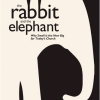
Book Review: The Rabbit and the Elephant: Why Small Is the New Big for Today’s Church, by Tony Dale and George Barna
Review by Aaron Menikoff | 9Marks Journal: A New Evangelical Liberalism | 03.01.2010Though The Rabbit and the Elephant is about the church, there is little explanation of what the church is beyond a series of interconnected relationships.

Book Review: Why Join a Small Church?, by John Benton
Review by Aaron Menikoff | 9Marks Journal: A New Evangelical Liberalism | 03.01.2010Maybe small churches do have a lot to offer. This is the heart of Benton’s message, and I think it is worth listening to.
From the 9Marks Journal:

Free Download
PDF, ePub, and Kindle files will be sent to this email address. As part of our community, you will receive content & communication from 9Marks. You may unsubscribe at any time.
Support 9Marks
Our work is possible by the generosity of our readers. Give Today





